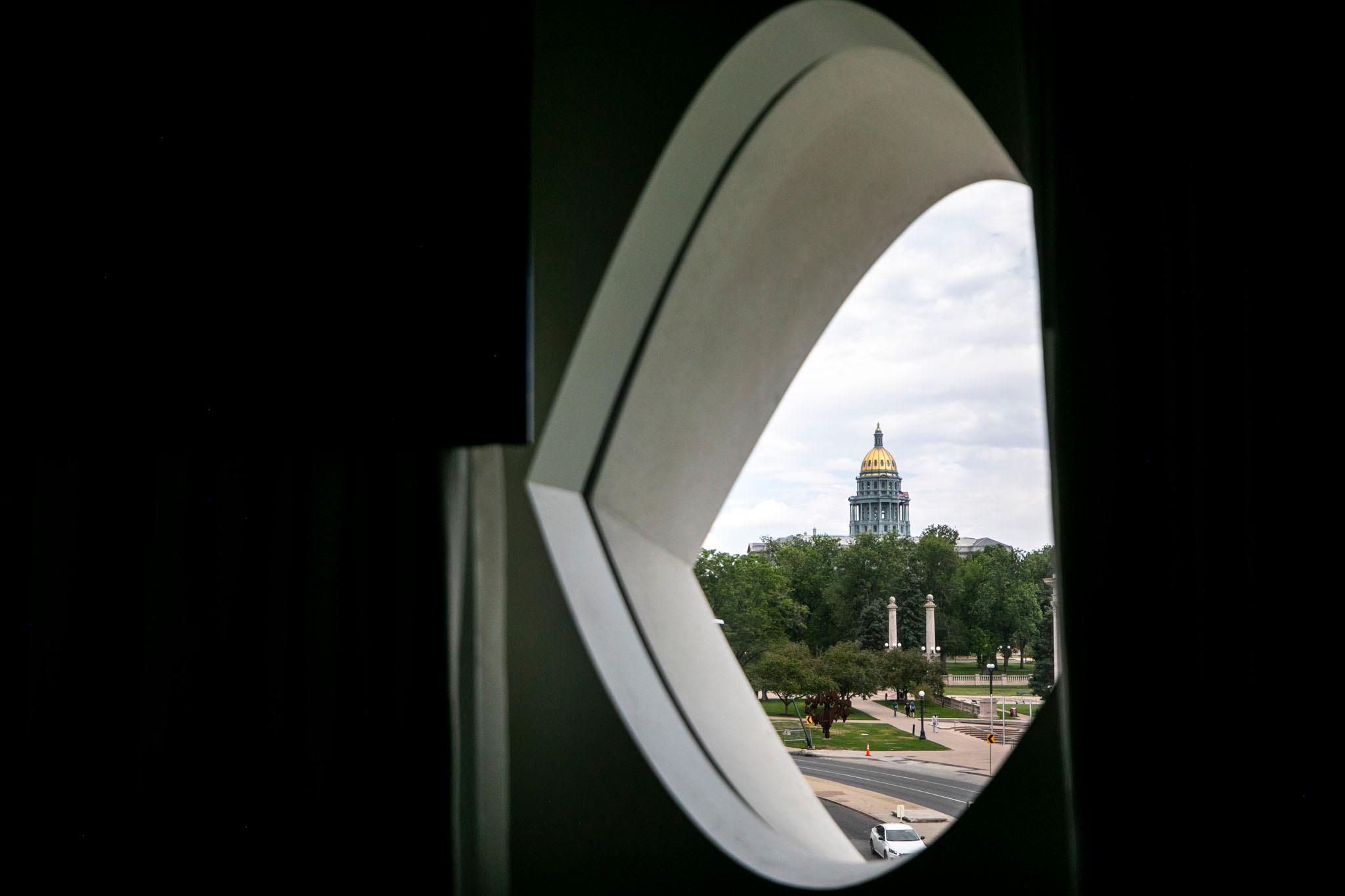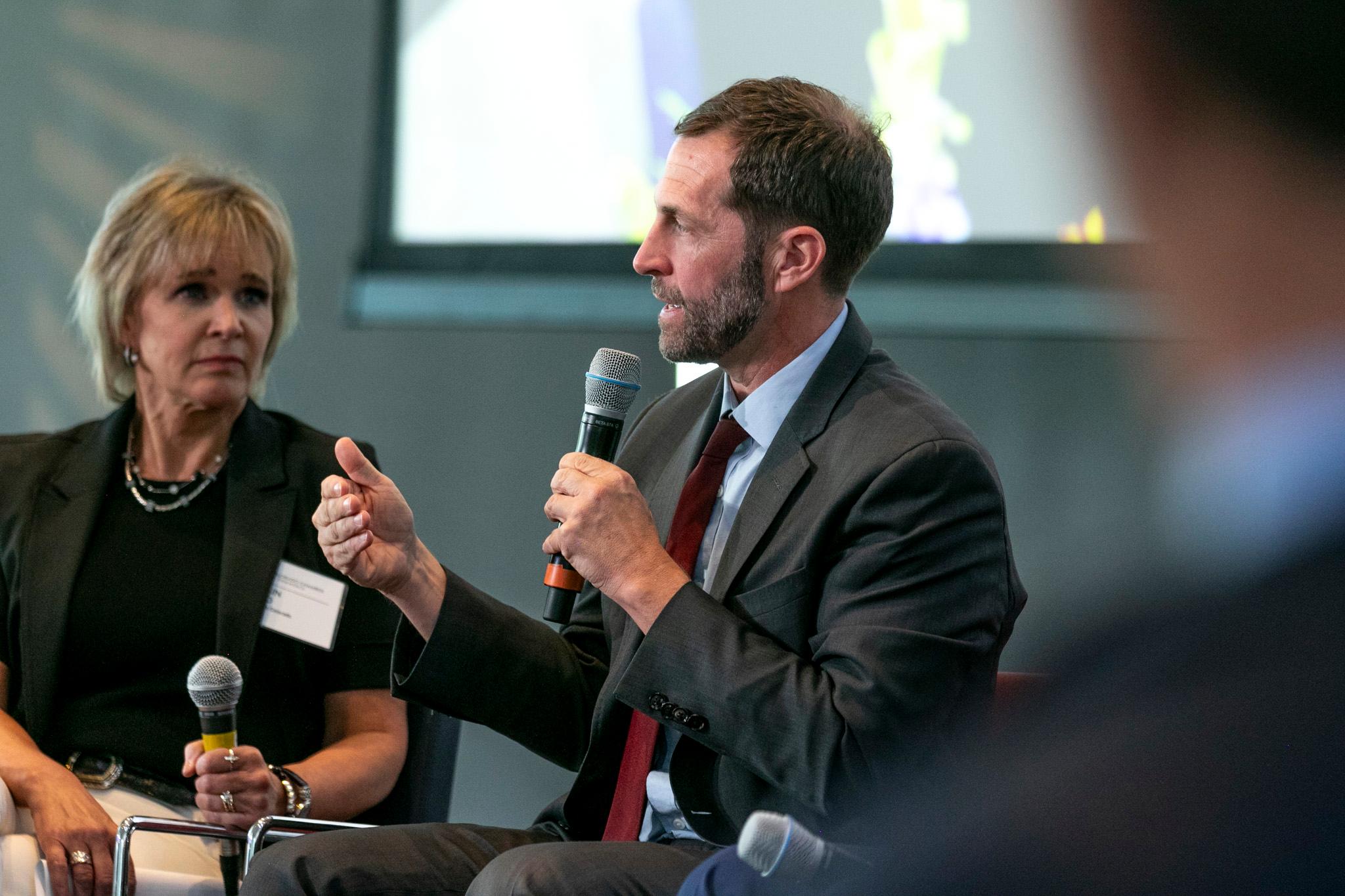
Colorado’s top politicians are debating whether to call lawmakers back to work to cut property tax rates once more.
The talk of holding a special legislative session is being driven by a pressing deadline: the November election. As things stand now, a pair of ballot measures will likely go before voters in a few months, asking them to permanently slash property tax rates and put a statewide limit on future property tax revenue. If passed, those measures would make major changes to the property tax system that funds schools and local governments.
Bipartisan political leaders, including representatives of Gov. Jared Polis and top lawmakers, are in talks with the business and conservative groups who proposed the tax-cut ballot initiatives.
They’re considering a deal that could result in lawmakers returning to the Capitol and passing another round of property tax rate cuts this month, in exchange for the groups pulling the November ballot measures.
“Governor Polis is having conversations with all parties about how we can further reduce property taxes, decrease risk, build on the major tax cuts of the last two years, and continue saving people money on property taxes without undermining Colorado’s future,” wrote Shelby Wieman, a spokesperson for Polis.
Michael Fields, who is leading the tax-cut campaigns this fall, confirmed to CPR News that discussions are underway.
“Our end goal has always been to cut and cap property taxes - and to ensure a spike like the one we just saw never happens again. The legislature still has a narrow window to act. But if they don’t, we are full steam ahead with both of our measures,” he wrote in a text.
The property tax negotiations present a tricky political — and fiscal — question for state leaders.
On one hand, disarming the ballot initiatives is a major motivator for Polis and other politicians from both parties. Members of both parties fear the measures could cause chaos for state and local government budgets.
Holding a special session could allow lawmakers to pass smaller tax changes and avoid the more sweeping, dramatic limits that would result if voters approve Initiative 50 and Initiative 108 this fall. Reaching an agreement also would allow Polis and other Democrats to say that they had cut property tax rates again, while avoiding having to fight the measures on the campaign trail.
Democratic state Sen. Chris Hansen said the changes under negotiation now are “minor adjustments” to the bipartisan property tax rate cuts lawmakers passed just a few months ago; that policy had support from leaders of both parties, but didn’t go far enough to satisfy the backers of the tax-cut ballot initiatives.
In contrast, the proposed ballot measures would reduce property tax revenues by an estimated $3 billion annually compared to the status quo; push the state government to contribute an estimated $2.3 billion annually to mitigate some of the impacts to schools and local governments; and implement a brand new system to cap future tax revenues.
The backers of the ballot initiatives — including the business group Colorado Concern and the conservative group Advance Colorado — say the bipartisan criticisms of their plan are overblown. But they also have signaled that they are willing to accept smaller changes, if lawmakers can get them done in the next few weeks.
The deal under negotiation now would permanently lower property tax rates and strengthen the cap that was implemented earlier this year, by expanding it to cover taxes collected by school districts, too.
“I think we’ve done a pretty good deal. Believe me, it wasn't easy to try to bring everybody together, to get to this agreement, to get to this compromise,” said state Sen. Barbara Kirkmeyer, a Republican involved in negotiations.
But there’s a raft of people who don’t want to negotiate over the property tax ballot measures.
For politicians, a special session could be complicated and costly. Any changes would have to be made in the next few weeks, so that the ballot initiative backers have time to withdraw their measures by a Sept. 6 deadline.
That would mean calling lawmakers back to the Capitol just as the crucial 2024 election cycle hits full speed.
A special session could also be unpredictable — last year’s session was dominated just as much by debate over Israel’s war in Gaza as it was with the intended topic, property taxes.
More broadly, several groups — including progressive politicos and advocacy groups, representatives of local taxing agencies and some emergency service leaders — don’t like the idea of cutting yet another deal in response to ballot measure threats.
“This is the very definition of moral hazard. The more that the legislature agrees to take action, just because some wealthy proponent of a ballot measure threatens the state, the more likely we are to see continued threats like this into the future,” said Chris deGruy Kennedy, the new head of the progressive Bell Policy Center. (deGruy Kennedy is in the final months of his time as a Democratic state Representative.)
Don Lombardi, the fire chief of West Metro Fire Rescue, said it was “appalling” that lawmakers were considering a special session, especially as fire agencies that rely on property taxes are fighting a spate of wildfires. Lombardi said the ballot measures, as well as past tax changes, have limited the ability of fire services to catch up with demand.
Lombardi wants to fight the ballot measures on the campaign trail, rather than compromising at the Capitol.
“I'd rather go out and try to pitch our case to our voters, because our voters are really smart, and they would see how this will affect them and the services that we provide, and we should be able to educate them all on this, so that they can see how poor Initiative 50 is, how poor Initiative 108 is, and how that's bad for Colorado all the way across the state,” he said.
Initiative 50, the property tax cap, is a constitutional amendment that would require 55 percent approval to pass. Initiative 108, which reduces property tax rates by nearly a fifth, is a legislative change, so it would only require a majority of the votes this November. Both measures would be practically impossible for lawmakers to undo without voter approval in the future.
Lawmakers have already passed a series of changes to property tax rates in recent years, including during the special session last fall and in this year’s regular session. Those changes have generally focused on lowering the rates at which property is taxed, as well as capping how fast certain parts of a property owner’s tax bill can grow. Lawmakers said the most recent reforms added up to more than $1 billion of savings, compared to the status quo.
But even with the discounted rates, property values have jumped so sharply that many people’s bills have still increased in recent years.
Kirkmeyer said that the latest special session proposal builds on earlier negotiations that happened during the legislative session.
“We basically got around 75 or maybe 80 percent of where we wanted to get to,” she said. “The deal that we're working out is something that I believe most everybody can agree to.”
Some Democrats are open to another legislative cut, but are hesitant to hold a special session. They have suggested that they could instead promise to take action in January, if the ballot initiatives are canceled now. But it’s unclear if the tax-cut campaigners would accept politicians’ promises, as opposed to immediate and concrete action through a special session.
Spokespersons for Senate President Steve Fenberg and House Speaker Julie McCluskie both declined to comment on Monday morning.









